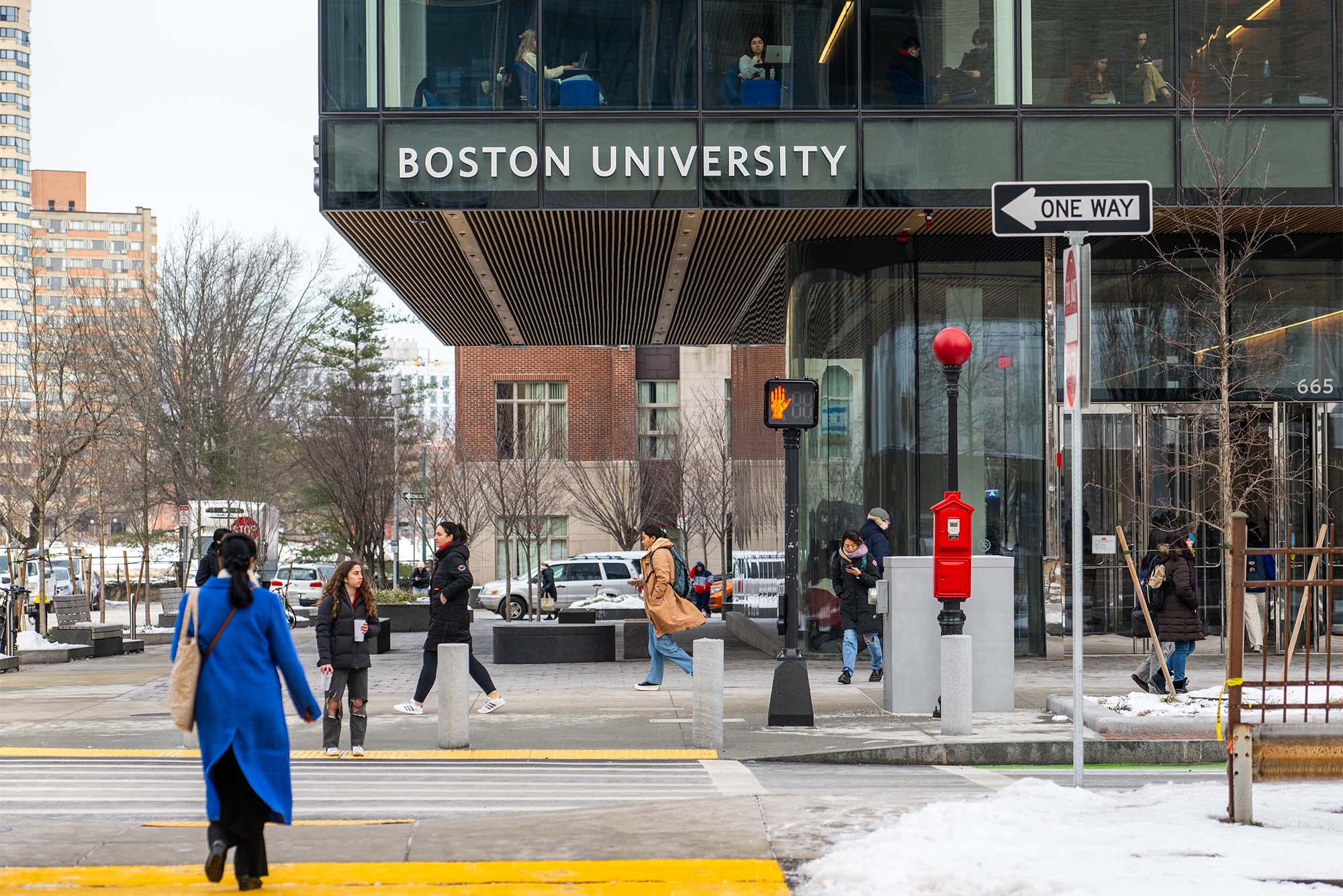Staff Advisory Council Seeks More Members to Broaden the Voices of Staff on Campus

The new BU Staff Advisory Council “is about providing a voice for staff, particularly on staff-related topics,” says Megan Funaro, one of the council’s two vice chairs.
Staff Advisory Council Seeks More Members to Broaden the Voices of Staff on Campus
Three subcommittees have been formed to help University employees feel more valued
It’s been almost a year since the formation of the BU Staff Advisory Council (BU-SAC), which was created to help give Boston University’s 6,300 staff members a united voice, as faculty has.
Since its formation and after months of internal discussions, the new council has established three subcommittees, staff events, council membership, and staff recognition, to help staff feel more valued at the University. The council (an advisory body reporting to the University president) will be actively seeking new members for the next academic year and broad staff participation to take some next steps. When fully staffed, SAC will have 30 members, elected to three-year terms, all at the staff or first-line supervisory level.
The vice chairs of the Staff Advisory Council, Megan Funaro, assistant provost for operations, and Michelle Njoroge (CAS’20), a College of Arts & Sciences academic advisor, outlined a few of the issues they see as priorities. The council is working in partnership with Human Resources and the Office of the Senior Diversity Officer. (BU staff with questions are invited to contact the council at busac@bu.edu.)
“This is about providing a voice for staff, particularly on staff-related topics,” Funaro says.
Among the issues the Staff Advisory Council hopes to address are:
- The number of days employees are allowed to work remotely during certain quieter seasonal periods or breaks.
- Improving performance management and professional development opportunities, including better supervisor training and creating training for non-managers. “How do I talk to my supervisor about career advancement? That’s a question people have,” Funaro says. “Stuff for people early in their careers.”
- Revamping BU’s performance review system (Funaro notes that HR recently improved the onboarding process for new employees after feedback from SAC).
- Working with Human Resources staff on improving transparency around salary grades and salary comparison data. “This will be particularly helpful for staff who don’t regularly interact with HR and might be unfamiliar with the language that they use,” Funaro says.
Njoroge is working on the awards subcommittee, with a goal of providing different opportunities for staff to be recognized on campus for reasons other than length of employment. She also hopes that a wide array of staff members will volunteer to serve so that the current SAC makeup broadens to include more people beyond managerial roles.
The Staff Advisory Council is also looking at ways to help bring together staff on the Medical, Fenway, and Charles River campuses.
Funaro and Njoroge also hope the way that BU handles tuition remission benefits for employees can be reexamined. The current system does not allow employees to use the benefit for online courses. “It’s an issue of professional development and retention,” Funaro says. “We need these degrees to advance.”
Funaro, who is heading the events subcommittee, says the council will be posting and hosting events this spring “so staff feel more connected.” As an example, she says, they plan to hold a reception for new BU employees to welcome them on campus.
Comments & Discussion
Boston University moderates comments to facilitate an informed, substantive, civil conversation. Abusive, profane, self-promotional, misleading, incoherent or off-topic comments will be rejected. Moderators are staffed during regular business hours (EST) and can only accept comments written in English. Statistics or facts must include a citation or a link to the citation.